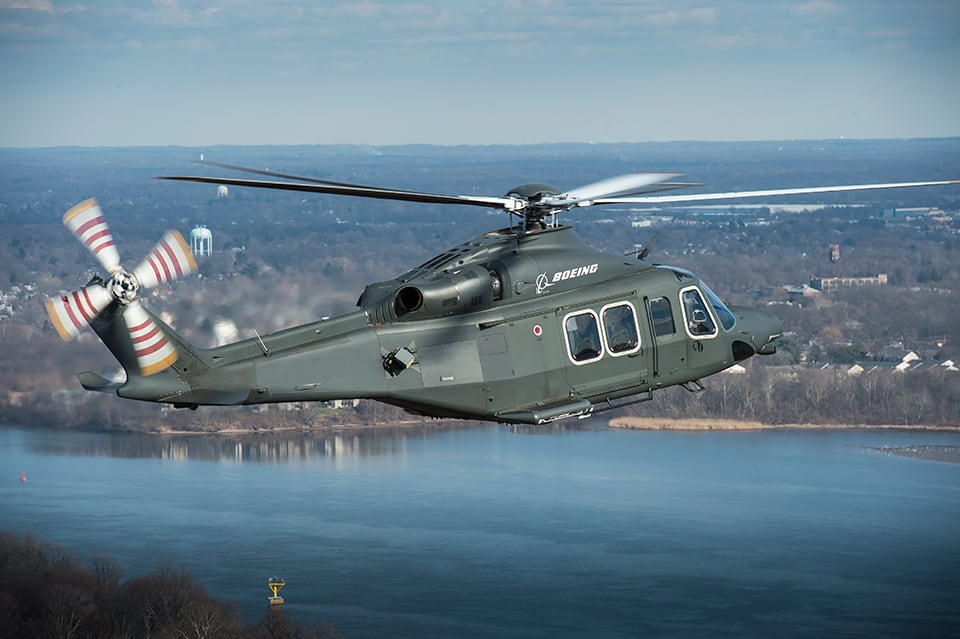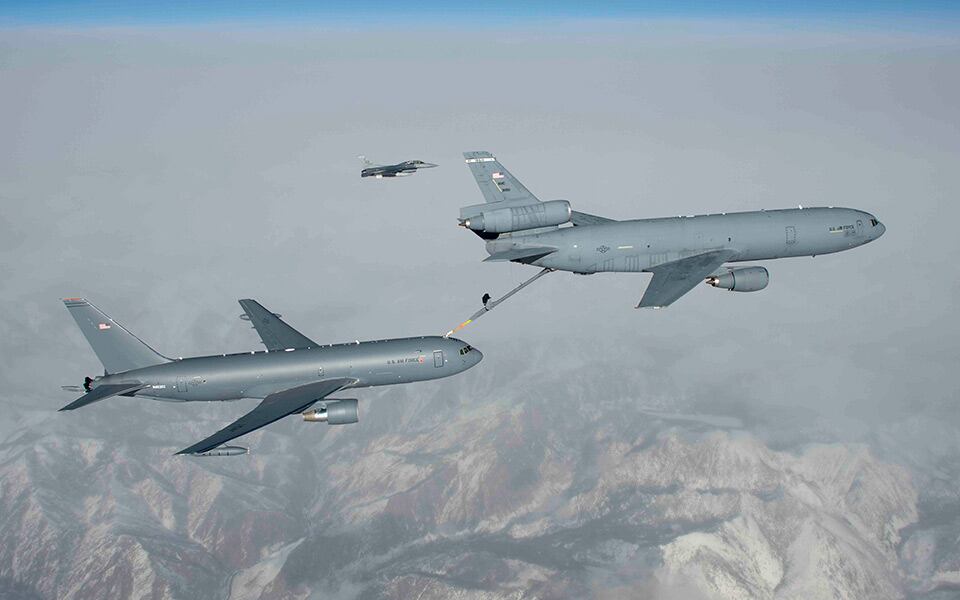WASHINGTON — The U.S. Air Force’s top leader is hopeful that Boeing will be able to keep the newly awarded UH-1N helicopter replacement on pace despite the company’s record with schedule delays on the KC-46 tanker program.
“The intention there is to work with Boeing. We don’t think this is a complicated procurement,” Air Force Secretary Heather Wilson said Sept. 26. “The first part will be the engineering work and some of the things that they are going to have to do to modify the aircraft. We’ll move through that and then we expect to buy four of them.”
Wilson spoke to reporters at the National Press Club just days after the Air Force gave a contract to a Boeing-Leonardo team for the Huey replacement, and ahead of the T-X contract award that is speculated to be announced this week.
RELATED

A Boeing-Leonardo team won the UH-1N replacement contract Monday — a $375 million initial payment to build the first four MH-139s with follow-on awards potentially worth up to $2.38 billion. Boeing and Leonardo are individually competing for the T-X trainer contract, as is Lockheed Martin.
Wilson touted the Huey replacement effort as an example of the benefits of industrial competition, saying the Air Force saved $1.7 billion on the program by having multiple vendors bid on a fixed-price contract set up so contractors are responsible for cost overruns.
The Air Force had initially considered sole-sourcing UH-60 Black Hawks from Lockheed Martin subsidiary Sikorsky when the program began, but former service leaders believed it was legally obligated to pursue a competition and chose to open up the process in 2016.
“As it turns out, I think that really was the right decision,” Wilson said. “It wasn't a decision I made — it was my predecessor — but because of that competition, Boeing won the competition at a significantly lower price point, so I think the taxpayer is going to get a good deal out of that and the Air Force will get a replacement for the aging Hueys for both the missile fields and other areas."
At face value, the KC-46 and Huey-replacement programs share some similarities: Boeing won both contests by offering a militarized version of a commercial aircraft and by undercutting the competition after bidding aggressively low on a fixed-price contract. Analysts have speculated that if Boeing wants to win T-X with its clean-sheet design, it will have to take the same assertive approach in terms of price.
RELATED

During her remarks, Wilson avoided connecting lines among the KC-46 program, the Huey replacement and the T-X competition, even when asked if the difficulties on the tanker program had led to lessons learned.
Instead, she repeated that, despite the KC-46’s ongoing technical issues, the Air Force and Boeing continue to work toward getting the first KC-46 ready for delivery in October.
“We’re still getting the test reports in and making sure that any deficiencies are taken care of, or that Boeing commits to take care of them at Boeing’s expense, even when we do operational test and evaluation,” she said. “But we’re driving through those. This is why we do testing: to make sure that it works and that all the kinks are worked out of the aircraft. And when it’s ready, we’ll accept it."
Valerie Insinna is Defense News' air warfare reporter. She previously worked the Navy/congressional beats for Defense Daily, which followed almost three years as a staff writer for National Defense Magazine. Prior to that, she worked as an editorial assistant for the Tokyo Shimbun’s Washington bureau.








